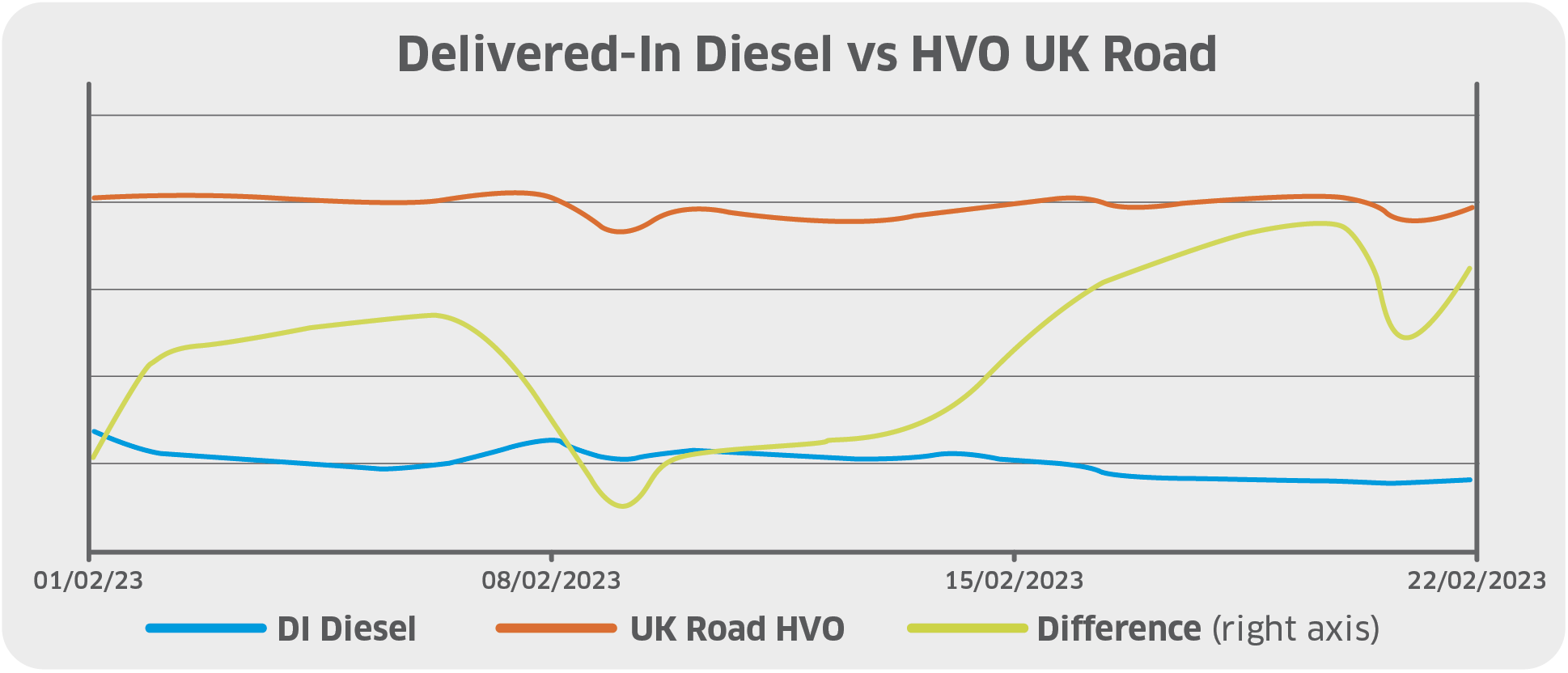Analysis by Portland Pricing has shown that the average cost of commercial bulk diesel has fallen in recent weeks, from a high of around 124ppl at the beginning of February to 119ppl at the time of writing.
This is primarily due to low demand on the back of economic uncertainty and fears of global recession, as evidenced by the weekly report published by the Energy Information Administration (EIA). Although US-focused, the report is considered a key indicator of demand trends. Over the last eight consecutive weeks, EIA has reported an increase in stocks, which suggests low consumer demand.
Lower demand has outweighed supply disruption in Europe. Shell announced a three-month closure of its Pernis refinery in Rotterdam, while Turkey’s Ceyhan refinery was closed due to damage following the devastating earthquake in Syria and Turkey.
Russia has also announced significant cuts to production, albeit felt to a lesser extent in European markets due to sanctions imposed following the Russian invasion of Ukraine. Generally, disruption to supply would see markets rise. However, the fall in price demonstrates the weight of demand concern at present.
The price of renewable diesel for road use, commonly referred to as HVO, has also fallen, albeit to a lesser extent by c.1ppl. Although HVO pricing is subject to a variety of factors, such as the value of feedstocks, production costs and European carbon compliance markets, the European wholesale price does loosely track that of traditional diesel.
That said, the end-user market price in the UK can be further impacted by exchange rates (wholesale products are traded in US dollars) and the cost of compliance with the UK’s carbon reduction scheme for the transport sector – the Renewable Transport Fuels Obligation (RTFO).
The premium above traditional fossil diesel for HVO widened across February, rising from 26ppl to 31ppl. That was largely driven by a fall in the value of Renewable Transport Fuels Certificates (RTFCs) due to lower demand for biofuels in general, again linked to economic instability.
Renewable diesel produced from waste feedstock, such as used cooking oil, generates one or more RTFCs when imported to or produced in the UK. Producers/importers can use these certificates to either meet their own biofuels obligations under RTFO, or sell them on to other obligated businesses.
As a result, RTFCs have a trade value, which ultimately affects the sale price of HVO in the UK. The lower the RTFC value, the less benefit HVO producers/importers receive, therefore leading to a higher differential against traditional diesel.
Portland Pricing is a specialist provider of transparent, independent fuel price information, covering both traditional and alternative fuels. For more information, visit its website.




























